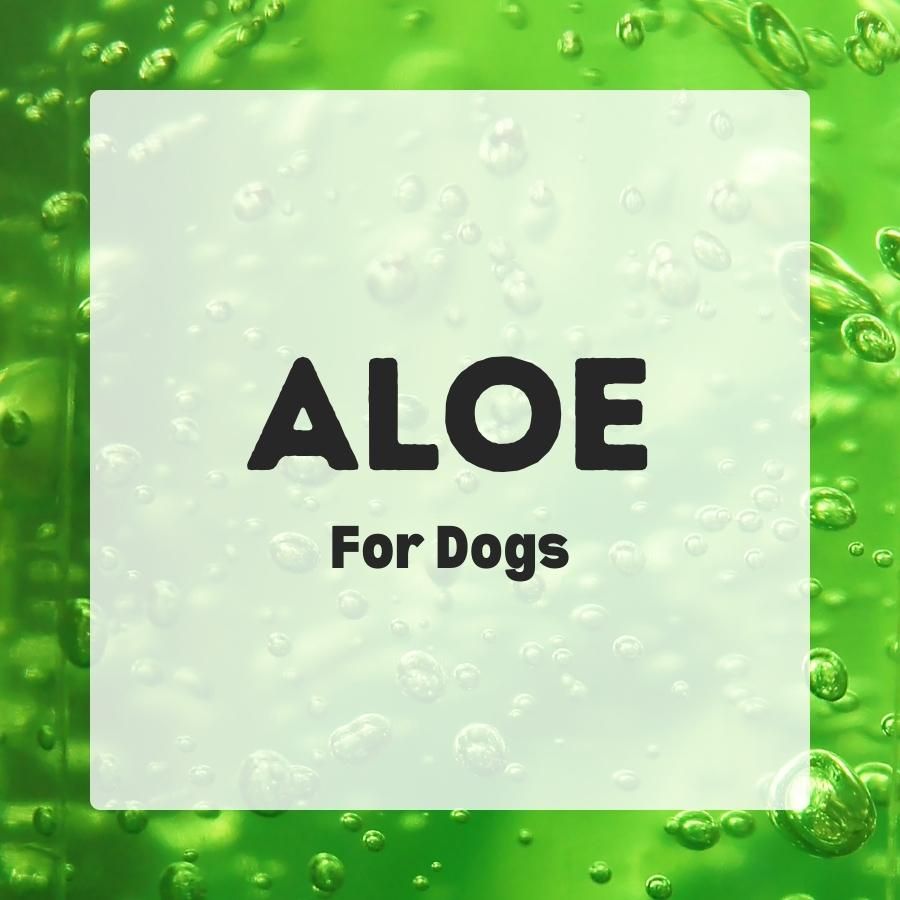Are you considering giving aloe vera to your dog but unsure of its benefits and risks? This article explores what you need to know about aloe for dogs before you use it.
Contents
What is Aloe?
Aloe vera (Aloe barbadensis) is a succulent evergreen native to the Arabian Peninsula that grows in hot dry climates.

Aloe has been used for centuries in folk medicine and is marketed in supplements with many purported health benefits.
Many people are familiar with the use of aloe vera in cosmetic products, but it can also be used as a food ingredient.
When used in food, aloe vera is usually consumed in the form of gel or juice from the leaves of the plant.
Aloe vera gel has a sweet taste and a viscous texture. Aloe vera juice, on the other hand, has a slightly bitter taste.
Aloe Vera For Dogs
Aloe vera gel and extract are substances made from the aloe vera plant.
Aloe vera gel is a clear substance extracted from the inner portion of the leaf. Aloe vera extract is made by crushing or grinding whole leaves of the plant, including the outer layer.

Aloe products contain a variety of compounds, including vitamins, minerals, amino acids, and enzymes, as well as glucomannans and phytochemicals that may have potential health benefits.
The gel is typically used as a soothing agent for skin irritations or taken as a dietary supplement. It’s the most widely used product in the cosmetics and natural food industry.
Aloe in Dog Food
Aloe is not a common ingredient in dog food. And that’s good because we don’t think aloe vera is safe for dogs to ingest!
The only aloe compound we detected in commercial recipes in our database was aloe vera gel concentrate.
Although manufacturers highlight aloe in dog food as a functional ingredient, aloe is actually just a flavoring agent!
According to the AAFCO, aloe vera gel concentrate can not exceed 0.0125% in the finished product to make it safe for dogs[5].
Benefits of Aloe Vera For Dogs
Aloe vera is a plant that is used as a folk medicine.
It contains many bioactive ingredients such as allantoin, enzymes, pyrocatechol, or salicylic acid.
Aloe contains some compounds that can in fact reduce pain and inflammation, such as bradykininase and antiprostaglandin.
Aloe vera ointments might accelerate wound healing and help with pyoderma in dogs[3].

But some companies market aloe vera with various other health claims such as digestive support, dental hygiene, or joint health, etc.
But there is very little or very inconclusive scientific evidence to support these claims[4]. Most of the promises seem to be basically just made up by the (pet) supplement industry….
Quite the opposite, actually…
Ingesting aloe is mildly to moderately toxic to dogs.
Aloe vera can cause vomiting or diarrhea when taken orally. It’s associated with kidney failure, as well as hypersensitive reactions.
And to make matters worse, the U.S. government has found that aloe vera extract can cause intestinal cancer in rats.
Aloe extract contains a high concentration of phenolic phytochemicals like aloin and other anthraquinones.
Aloe extract was widely used in cosmetics and other wellness products but is now considered a potential carcinogen!
In the end, aloe vera is a controversial ingredient in pet foods due to its potential toxicity. We don’t think your dog benefits from eating it.
Is Aloe Safe for Dogs?
Aloe is a herbal medicine with a long tradition of use.
As a remedy for the skin, it seems to be ok for dogs. The gel doesn’t offer real benefits but seems edible in small amounts. But your dog should never ever eat whole leaves or aloe extract.
The Center for Science in the Public Interest warns that given the possible risks and unsubstantiated benefits, people should not consume Aloe vera at all. And that seems quite reasonable.
Because of the few benefits it might offer and the safety concerns about aloe in dog food, we recommend you avoid feeding it. And we recommend you ask your vet for an opinion before using it as a skin remedy.
Further Reading
[1] Guo & Mei. Aloe vera: A review of toxicity and adverse clinical effects. J Environ Sci Health C Environ Carcinog Ecotoxicol Rev. 2016. https://doi.org/10.1080%2F10590501.2016.1166826
[2] Drugs.com: Aloe.
[3] Arbaga et al. Biochemical and histopathological changes related to the topical application of Aloe vera ointment for canine pyoderma. Vet World. 2021. https://doi.org/10.14202%2Fvetworld.2021.1354-1362
[4] Sadoyu et al. Aloe vera and health outcomes: An umbrella review of systematic reviews and meta-analyses. Phytother Res. 2021. https://doi.org/10.1002/ptr.6833
[5] AAFCO Official Publication. Chapter 6. Free Access.
